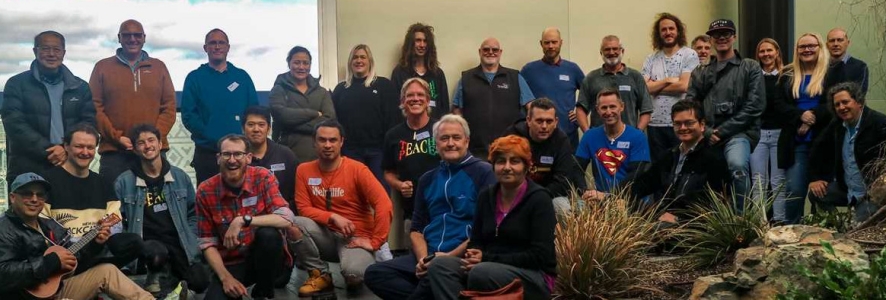Click below to veiw an interview with Bethlehem Tertiary Institute ECE lecturer, Philip Ozanne
There has been a lot of attention in the media lately given to the shortage of male teachers in the Early Childhood Sector. It is estimated that only 2% of Early Childhood teachers are male, and this is not a new problem. Numbers have always been this low in New Zealand. This disparate representation in our Early Childhood centres has far-reaching implications for our young people, and is a problem that deserves both our attention, and our attempt to explore solutions.
Students at Bethlehem Tertiary Institute are very blessed to have Philip Ozanne leading the Centre-Based Diploma of Teaching (Early Childhood Education) programme. We sat down with him recently to hear his views of this important issue.
Why do you think we have a shortage of male ECE teachers in NZ?
I think there is still the stigma and the idea amongst men, that it’s babysitting. They don’t see it as education necessarily. Often, until they have children of their own and experience pre-school through kindergarten or childcare centres, they don’t see the possibility of the benefits for a man working in the field.
Sometimes men aren’t coming into the field because of the money side of things, they don’t think it’s a living. You can make enough money now to survive on. I’ve done that – when I was working in the field I had 3 children. The money’s changed to a degree where you can earn a living and live comfortably.
Do you think that men are afraid of working with children because of sensitivity around the cases of sexual mis-conduct that were highlighted in the 1990s ?
What happened in the 1990’s, as shocking as it may have been – and I don’t honestly know in some of those cases..whether they were guilty or not – has actually helped Early Childhood. They protect the staff in Early Childhood now, and often those opportunities for things to happen have been so minimalised that they don’t. There is such a small chance of it happening now because everything is out in the open. Everything is done where other people can see, whereas in the 1990’s it was about privacy.
Why is it important that we have men teachers in our centres?
They bring the difference of doing it a different way and thinking differently. Also, the way society is right now, a lot of men are absent from families or are not available all the time for children, so how do boys and girls know what a positive male looks like if they don’t have that at home? When it comes to moving into dating or looking for a partner in life it’s important to have those positive male role models so they know what to look for if they are a girl, and for a boy, so that they can model themselves on that.
What motivates you in your work as an ECE lecturer?
The biggest motivation for me right now is getting more men into Early Childhood, and making every person I come across in Early Childhood the best teacher that they can be for the children that they are going to be serving. There’s a saying in one of the organisations that I belong to that says iIn the best interests of children’, and that’s my motivation. I am here to help train the best teachers, so we can have the best teachers in the field, male or female.


